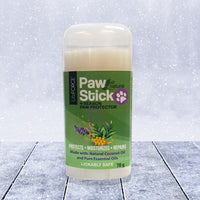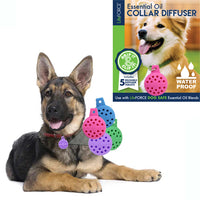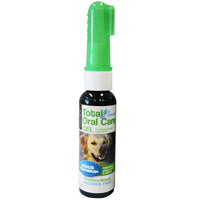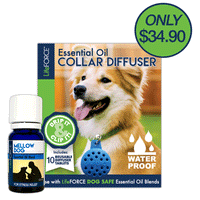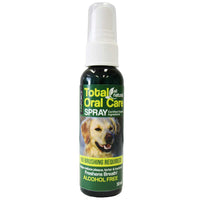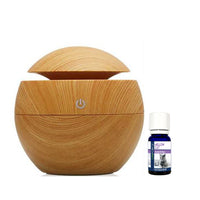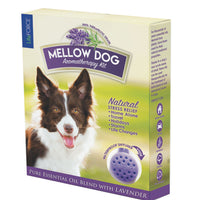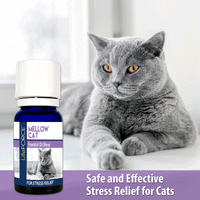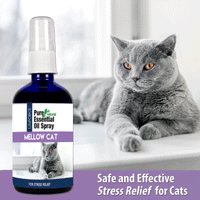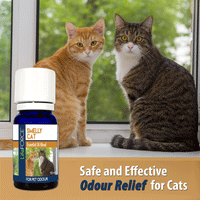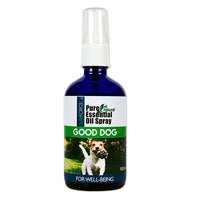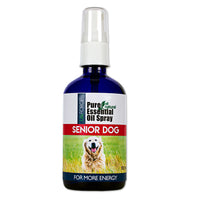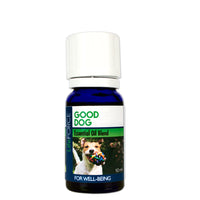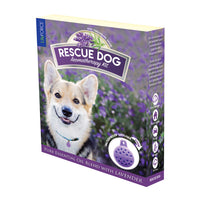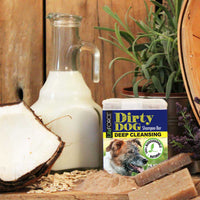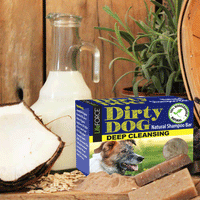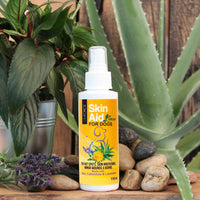
Along with a healthy high quality diet, there are a number of supplements, herbs and essential oils that can help maintain your dog’s dental health.
Nature has so much to offer our dogs. Wholesome foods, nutrient-rich herbs, oil distilled from plants – these natural alternatives to conventional medicine improve overall wellness. But they’re particularly adept at promoting a healthy environment in your dog’s mouth. Let’s look at some popular choices.
Supplements
If your dog eats a raw diet, he’s likely already getting adequate nutrients. But it never hurts to check with his holistic or integrative vet to determine if any of these supplements can be added to improve his dental health.
Probiotics
Colonies of bacteria grow in your dog’s mouth, creating pockets of space around his teeth. Plaque begins to form there, resulting in inflammation and gingivitis. Feeding probiotics – beneficial bacteria – will keep bad bacteria at bay, while supporting your dog’s gastrointestinal health and immune system function. Natural sources include plain kefir and fermented vegetables.
Enzymes
Enzymes enhance nutrient absorption, reduce inflammation and support overall digestive health – all leading to a healthier mouth. Feeding your dog a raw food diet will increase his enzyme intake, so start there. In addition, toss him a few chunks of papaya and pineapple now and again, as these fruits contains the naturally-occurring enzymes papain and bromelain
Omega-3 fatty acids
The anti-inflammatory action of fatty acids supports periodontal health. They build strong bones and teeth, lubricate the gastrointestinal tract to aid digestion, and regulate inflammation and healing. There are three components of Omega-3 fatty acids – alpha-linolenic acid (ALA), eicosapentaenoic acid (EPA) and docosahexaenoic acid (DHA). Sources of EPA and DHA include salmon, halibut and fish oil supplements. ALA is found in flaxseeds, flax oil and dark leafy greens.
Antioxidants
Oxidative stress and free radical damage in your dog’s body can lead to dental disease. Antioxidants protect his cells from this damage. Ensure your dog is eating enough antioxidant-rich fruits and veggies – blueberries, cranberries, kale, and spinach – as well as healthy whole grains. Buckwheat honey is another great antioxidant source that soothes sore and inflamed gums.
Herbs
Again, work with a holistic or integrative veterinarian before giving your dog any new herbs.
Aloe is composed of 99% water – but don’t let that fool you. The juice from this plant can be applied to your dog’s gums to repair damage and soothe discomfort. Aloe is also easy to grow, making it an accessible healer.
Calendula is antibacterial, antiviral and antifungal. It promotes healing and growth of gum tissue, and prevents plaque and gingivitis.
Chamomile is used for its antiseptic, antibacterial and antifungal properties. It can also be used to speed healing of common dental issues.
Coriander (cilantro) is an antioxidant that helps guard the body from damage caused by free radicals, reducing the risk of periodontal disease. It’s also a powerful antiseptic and analgesic.
Dill was once used by Hippocrates, the Father of Modern Medicine, to clean and freshen the mouth. This palatable herb fights infection and promotes healing.
Echinacea reduces the risk of oral diseases and bacterial infections by boosting immunity; it soothes and heals when used in conjunction with goldenseal or Oregon grape.
Fennel is another breath freshener that protects against gingivitis. Feeding this herb on a regular basis will improve overall digestive health.
Feverfew is commonly used to soothe migraines and joint pain in humans. Parthenolide (a naturally-occurring element in feverfew) reduces inflammation in gums.
Goldenseal tightens loose tissue when regularly rubbed on the gum line; it’s a powerful anti-inflammatory and antiseptic that boosts immunity and freshens breath.
Mint is a no-brainer when it comes to dental health. On top of its cleansing and breath-freshening power, this herb promotes digestive health and stimulates the salivary glands, inhibiting tooth decay and oral diseases in your dog.
Parsley provides humans and dogs with many nutrients including fiber, potassium, iron and vitamins A, C, B1, B2 and K. Its antimicrobial properties fight foul odors caused by bacteria.
Hypericum (St. John’s wort) offers a soothing effect after dental surgeries as it eases pain in nerve endings.
Essential oils
Essential oils with antimicrobial, anti-inflammatory and pain-relieving effects offer many benefits to canine dental health.
It is very important to use pure, organic therapeutic grade oils! If you are in any doubt about the quality of an oil, consult a veterinarian who knows essential oils before using it on your dog.
To apply to your dog’s teeth and gums, always dilute essential oils with a carrier oil such as coconut oil, or use a pre-formulated blend (see sidebar).
Ceylon cinnamon is used to soothe and numb sore gums in teething children. It fights bacteria, fungi and infection, and aids digestion.
Clove relives painful swollen gums and prevents inflammation.
Myrrh was used throughout history to treat swollen gums, mouth ulcers and other dental ailments. It stimulates new tissue growth in the gums.
Neem combats smelly dog breath and wards off infection with its antiseptic, antioxidant and antibacterial properties.
Try an essential oil blend
Pre-formulated essential oil blends make cleaning your dog’s teeth quick and easy. Just ensure the blend doesn’t contain alcohol, which is dangerous for pets. LifeFORCE offers an alcohol-free Total Oral Care Spray and Gel that softens plaque and tartar, works under the gumline to help heal gum tissue, and kills the bacteria that causes bad breath.
Additional dental helpers
Grapefruit seed extract is antibacterial, antiviral, antifungal, anti-inflammatory, antimicrobial and anti-parasitic; it detoxifies and boosts the immune system. Its rich Vitamin C content supports collagen production to keep gum tissue strong and elastic.
Oil of oregano is one of the most effective natural antibiotics. Use it to make a doggie toothpaste (see sidebar) or add a couple drops to your dog’s food to protect his mouth from bacteria and infection.
Oregon grape inhibits the growth of bacteria that causes plaque and tartar. It also stimulates new tissue growth of the gums and is natural antibiotic.
A note about Coconut Oil
Coconut oil is a great tool to keep in your dog’s dental care kit. Rich in MCTs and lauric acid, coconut oil boasts antimicrobial properties that kill bacteria and prevent infection. It also moisturizes your dog’s gums and hardens tooth enamel over time.
Make a doggie toothpaste!
Mix one teaspoon of coconut oil with a couple drops of high quality therapeutic grade essential oil. Use a canine toothbrush or wrap a piece of gauze around your pointer finger and gently rub your dog’s teeth and gums with the toothpaste.
These natural solutions will help ensure your dog’s smile is as clean and health as your own!
Reprinted with permission of Animal Wellness Magazine
About the Author

